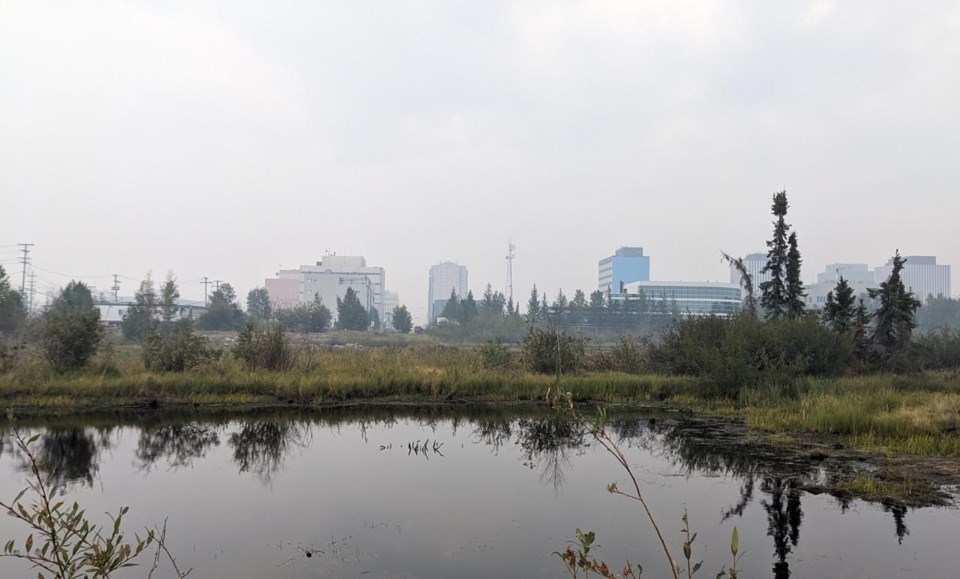YELLOWKNIFE — Wildfires threatening communities in the Northwest Territories were kept at bay Wednesday as politicians continued grappling with “astronomical” costs of fighting the blazes and how to eventually get people home.
The N.W.T. government said in its wildfire update that fires encroaching on the capital of Yellowknife, along with the communities of Hay River and Fort Smith, remained a threat but had not moved closer.
Fires were within 15 kilometres of Yellowknife, within eight kilometres of the hub city of Hay River and four kilometres from Fort Smith on the Alberta boundary.
Crews continued to water bomb the fires and dig barriers down to the forest’s dirt floor to rob the fires of fuel.
There were 237 active fires menacing the region. More than two-thirds of the 45,000-plus residents who call the N.W.T. home are living in evacuation centres and hotels as far as Calgary and Winnipeg. They left by plane or by driving hundreds kilometres to safety.
The 20,000 residents of Yellowknife were ordered out a week ago while other communities were evacuated before that.
In a conference call with reporters Tuesday, Yellowknife Mayor Rebecca Alty said a return date, which is still up in the air, has two parts.
"One is fire safety, and two is ensuring essential services are back up and operational,'' Alty said.
"We started our planning on Friday and we'll continue working on it until we can welcome residents back. Unfortunately, for now, it's not safe to return, so residents should remain where they are.''
She added that the evacuations have caused financial hardship for many.
"Disaster financial assistance is definitely needed in our territory, and council continues to urge the federal and territorial government to work together to provide assistance."
N.W.T. Finance Minister Caroline Wawzonek said they are still crunching numbers and crafting policy on the unprecedented disaster and evacuation. She said the legislative assembly is to meet Monday to move ahead formally on next steps.
“The fire costs, the fire suppression costs, are astronomical,” Wawzonek said in Tuesday night’s briefing.
“We’re going to have to figure this out.
“People won't be able to get back if they don't have some funding in many cases.”
She said the government is eyeing different reimbursement options, given the evacuees face different circumstances.
“Some may be able to use their insurance, some don't have insurance," Wawzonek said. "We also want to be mindful (of) our evacuation costs — we would ideally like to fit them within the Federal Disaster Assistance Program."
On Monday, the territorial government announced that residents 17 and older who are out of work for a week or more due to the fires are to receive a one-time payment of $750, with applications being processed starting this week.
In a statement, The United Way, it has distributed more than $400,000 for relief aid for the N.W.T. fires.
Along with evacuation centres, the Alberta government has offered free camping sites to evacuees for up to 10 consecutive nights.
The report by The Canadian Press was first published Aug. 23, 2023.
— By Dean Bennett in Edmonton
The Canadian Press




.jpg;w=120;h=80;mode=crop)